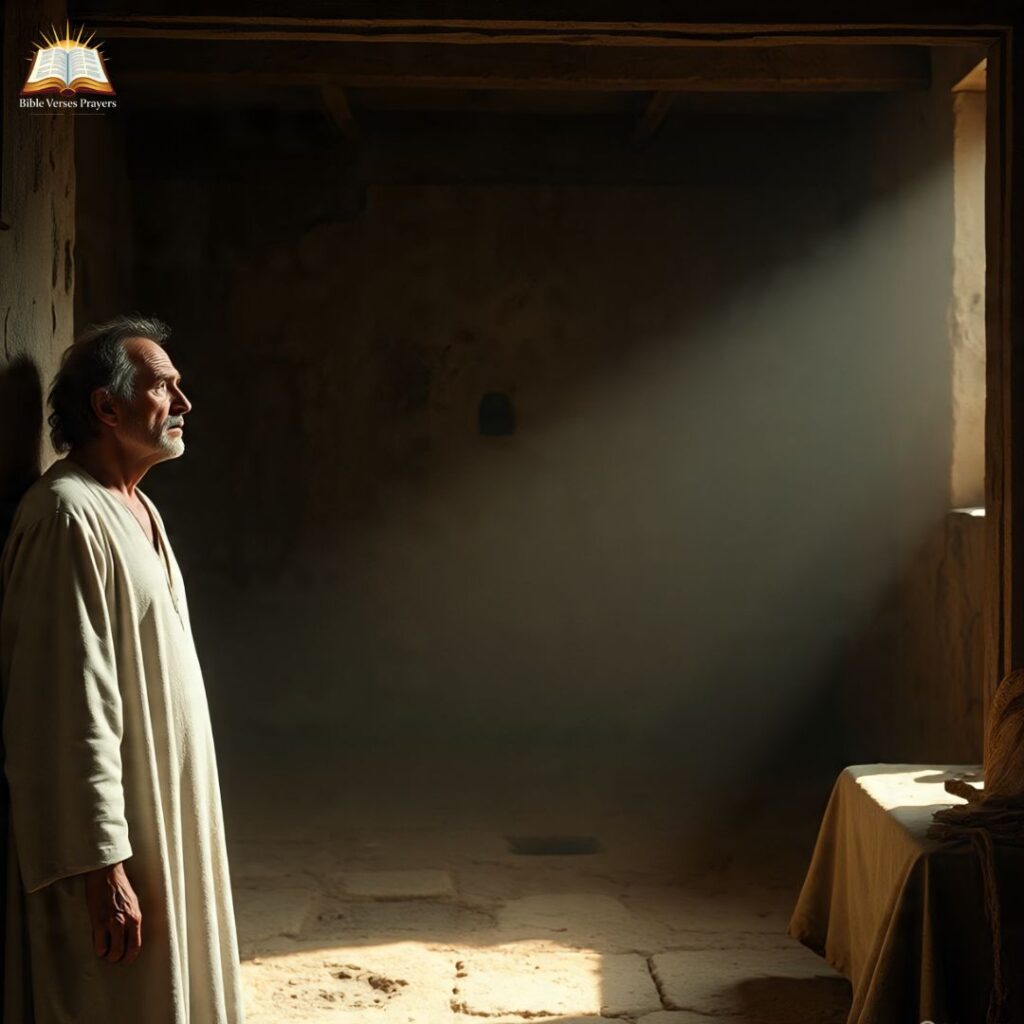Dreams have always intrigued people, and when a deceased loved one appears in them, it can be especially powerful and emotional. Understanding the meaning behind such dreams can offer deep insights into your subconscious mind and even help with healing or closure.
In 2025, as spiritual awareness continues to grow, these dream experiences remain among the most profound encounters people face.
In this article, we’ll explore the symbolism, common interpretations, and possible emotional impacts of dreaming about someone who has passed away.
Understanding Dreams in Biblical Context
Dreams have held a sacred place in spiritual understanding throughout history. The biblical perspective on dreams reveals their significance as potential channels of divine communication and spiritual insight.
The Bible and Dreams
Dreams have always been a significant part of biblical history. In fact, the Bible records numerous instances where dreams were used by God to deliver messages, reveal secrets, and even guide people in their lives.
For example, Joseph in the Old Testament had prophetic dreams that played a crucial role in his journey (Genesis 37), while Daniel interpreted dreams that revealed God’s plan for the future (Daniel 2).
In biblical times, dreams were considered more than mere fantasies; they were seen as divine messages. Scripture such as Job 33:14-16 reinforces the idea that God speaks to His people through dreams.
The Bible teaches that not all dreams have a clear or immediate interpretation, but many offer guidance, warnings, and comfort. These sacred visions serve as bridges between the earthly and divine realms.
Dreams in the Bible: Divine Communication
God has used dreams to communicate with His people for millennia. From the dreams of Joseph in the Old Testament to Matthew 1:20, where Joseph (the husband of Mary) is warned in a dream not to fear taking Mary as his wife, dreams have played a pivotal role in biblical history.
It’s important to note that biblical dream interpretation doesn’t always come immediately. Many times, the true meaning of a dream is revealed through prayer, reflection, and the guidance of the Holy Spirit.
The sacred nature of dreams in scripture demonstrates God’s desire to reach His people through various means. When our conscious minds are quiet, the Spirit can speak more clearly through symbolic visions and divine encounters.
Common Dream Symbols in the Bible

Biblical dream interpretation relies on understanding the symbolic language that God uses to communicate spiritual truths. Death and life represent profound theological concepts that carry deep meaning in dreams.
The Meaning of Death and Life in Scripture
In biblical interpretation, both death and life have deep spiritual significance. Death often symbolizes separation, transition, or a transformation in spiritual growth, while life typically represents renewal, hope, and God’s eternal promises.
For instance, Romans 6:4 tells us, “We were therefore buried with Him through baptism into death in order that, just as Christ was raised from the dead through the glory of the Father, we too may live a new life.”
The imagery of death and resurrection is central in Christian theology, and it’s important to recognize these themes when interpreting dreams about deceased individuals.
Resurrection and Renewal: Biblical Themes
The theme of resurrection plays a crucial role in Christian beliefs. John 11:25 mentions Jesus saying, “I am the resurrection and the life. The one who believes in me will live, even though they die.”
Dreams of a dead person alive could, therefore, symbolize a spiritual resurrection, renewal, or a message about life after death.
In the Bible, resurrection isn’t just a physical return to life but often symbolizes spiritual awakening or restoration. Seeing a deceased person in your dream could represent a need for emotional healing, closure, or the realization of spiritual growth in areas of your life that were once “dead” or stagnant.
The Meaning of Seeing a Dead Person Alive in a Dream
When deceased loved ones appear alive in dreams, these visions carry profound spiritual significance that can transform our understanding of life, death, and divine communication.
A Sign of Spiritual Resurrection?
One of the most common interpretations of seeing a dead person alive in a dream is that it represents a form of spiritual resurrection.
Biblically, resurrection signifies the transformation of the soul or the revival of something that was once lifeless or hopeless.
If you dream of a deceased loved one alive, it might be a reflection of your own spiritual renewal. You could be emerging from a period of mourning, despair, or confusion.
The dead person in your dream may symbolize the shedding of old ways or the revival of your faith. This powerful imagery suggests that God is working to restore areas of your life that seemed beyond hope.
A Need for Closure or Healing
Another common interpretation is that seeing a dead person alive indicates unresolved emotions. The dream could reflect your subconscious mind’s need for closure or a desire to address feelings of guilt, regret, or unfinished business with the deceased.
Biblically, grief is addressed through teachings like those found in 1 Thessalonians 4:13, which reminds us that we should grieve, but with hope, knowing that the resurrection of the dead is a promise from God.
Dreams involving the dead coming back to life can be a subconscious prompt to begin emotional healing and reconcile any unresolved feelings. These visions often serve as divine invitations to process grief in healthy ways.
Emotional and Psychological Aspects
The emotional dimension of dreams about deceased people reveals important aspects of our spiritual and psychological well-being that require careful attention and understanding.
Emotions Influencing Dream Interpretation
The emotions felt during a dream greatly influence its interpretation. A dream where a deceased person is alive can evoke a wide range of feelings, such as joy, peace, confusion, or even fear. The way you feel in the dream could point toward the emotional state of your waking life.
Joy and peace: If you feel comforted or happy seeing a deceased person alive, it might symbolize reassurance that your loved one is at peace or that you are ready to move forward in your life.
Fear and confusion: If the dream is disturbing, it could represent anxiety about death, or the difficulty in letting go of someone you lost. It may also suggest fear of change or the unknown.
Grief and Dreams of the Deceased
Many people experience dreams of deceased loved ones during the grieving process. In biblical teachings, grief is not something to suppress but something to be handled with God’s help. Jesus, in Matthew 5:4, said, “Blessed are those who mourn, for they will be comforted.” Dreams of dead people coming alive could be a form of comfort or spiritual guidance during a tough time.
The mourning process might cause your mind to seek closure, and dreams may be a way for your subconscious to process the emotions you’re working through.
These divine encounters during grief often provide supernatural comfort that human words cannot offer, serving as gentle reminders of God’s presence during our darkest moments.
Biblical Examples of Dead People Appearing Alive in Dreams

Scripture provides several examples that help us understand the spiritual significance of encounters with those who have passed from earthly life.
Joseph’s Dreams
Joseph, in the Old Testament, experienced vivid dreams that revealed future events. Though his dreams were not about the deceased, they were prophetic in nature and came from God. Dreams of dead loved ones coming back to life could have similar significance—offering a spiritual message or a prophetic glimpse into your life’s future.
Joseph’s ability to interpret dreams demonstrates the importance of seeking divine wisdom when understanding significant dream experiences. His story teaches us that meaningful dreams often require careful prayer and spiritual discernment.
The Resurrection of Jesus and Its Influence
Perhaps the most significant biblical example is the resurrection of Jesus in Matthew 28:5-7. Jesus’ rising from the dead brings hope to all believers that life is not the end, but a continuation of eternal existence with God. Dreams of dead people alive could serve as a reminder of hope, resurrection, and the power of God to renew what was lost.
The disciples’ encounters with the risen Christ provide a framework for understanding how the dead might appear alive in spiritual visions, bringing comfort, instruction, and renewed faith to those who witness such divine encounters.
Dreams as a Spiritual Message: A Call for Reflection
Divine dreams often serve as catalysts for deeper spiritual examination and growth, calling believers to consider their relationship with God and their eternal destiny.
Seeking Peace and Guidance
Dreams of dead people can be powerful messages from God, urging the dreamer to seek peace or spiritual guidance. These dreams may serve as a reminder that you’re not alone, that your loved one is at peace, and that God is with you, offering comfort.
Such visions often occur during times of uncertainty or spiritual seeking, providing divine reassurance that God’s plans extend beyond earthly life and that His love transcends death itself.
Repentance and Renewal
Biblical dreams are often associated with themes of repentance and spiritual renewal. If you’re struggling with guilt, bitterness, or unresolved sin, seeing a dead person alive could symbolize a call to forgiveness and spiritual rebirth. It might be an invitation from God to turn back to Him and embrace a life of holiness and righteousness.
The imagery of life conquering death reflects God’s power to transform hearts and restore relationships, both with the living and in our memories of those who have passed.
Warnings and Reflections
Sometimes, these dreams may not always feel comforting. They could be warnings or invitations to reflect on your relationship with God or a specific area of your life that needs attention. Perhaps God is calling you to reflect on areas of sin, brokenness, or faith that need healing.
These sobering encounters might prompt examination of your spiritual preparedness and encourage deeper commitment to living according to biblical principles.
The Role of Faith and Prayer in Understanding Dreams
Spiritual discernment requires active faith and consistent prayer to properly interpret divine messages received through dreams and visions.
Praying for Clarity
If you’ve had a dream of a deceased person alive and are uncertain of its meaning, prayer is an essential tool for understanding. James 1:5 says, “If any of you lacks wisdom, let him ask of God.” Through prayer, God can provide clarity and help you discern the true message of the dream.
Approaching God with sincere hearts and open minds creates space for the Holy Spirit to reveal deeper truths about the dream’s significance for your spiritual journey.
Turning to Scripture for Comfort
The Bible offers comfort and guidance for interpreting dreams, especially those involving deceased loved ones. Scriptures like Psalm 34:18, “The Lord is close to the brokenhearted and saves those who are crushed in spirit,” can bring comfort during the grieving process.
Regular meditation on biblical promises about eternal life, resurrection, and God’s faithfulness provides a solid foundation for understanding dream experiences within proper theological context.
Seeking Spiritual Leaders for Guidance
For further clarity, turning to a trusted pastor, spiritual mentor, or Christian counselor can provide helpful insight. They can guide you through biblical interpretation and help you reflect on the deeper meaning of your dreams.
Experienced spiritual leaders can help distinguish between divine messages and ordinary dreams while providing accountability in the interpretation process.
What to Do After Having a Dream About a Deceased Loved One?

Responding appropriately to significant dreams requires both spiritual wisdom and practical steps to process the experience constructively.
Practical Steps for Reflection
After having such a powerful dream, it’s important to take time for reflection and emotional processing. Here’s what you can do:
Journaling: Write down everything you remember about the dream and your feelings surrounding it. Document specific details, emotions, and any words or messages received.
Prayer and Meditation: Ask God for guidance and understanding. Spend time in quiet reflection, allowing the Holy Spirit to reveal the dream’s significance.
Talking to Someone: Share the experience with a trusted friend or spiritual leader for insight and prayer support.
Turning to Scripture for Comfort
Always return to God’s Word for comfort and clarity. Passages like Romans 8:38-39 can reassure you that nothing, not even death, can separate you from God’s love.
Meditate on biblical promises about eternal life, resurrection hope, and divine comfort during times of grief and spiritual seeking.
Conclusion
Dreams of seeing a dead person alive hold profound biblical significance that continues to impact believers in 2025. These dreams can symbolize spiritual resurrection, emotional healing, divine messages, or calls for deeper spiritual reflection.
No matter the interpretation, they remind us of God’s eternal promises of life after death, spiritual renewal, and divine communication through various means. The powerful imagery of life conquering death reflects the core message of Christian hope and resurrection faith.






